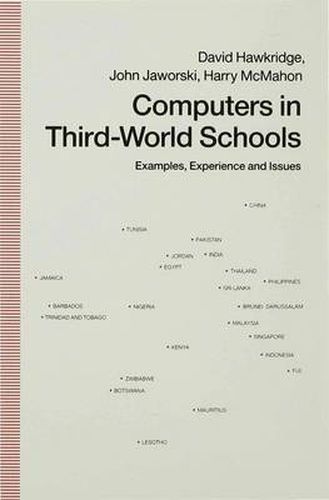Readings Newsletter
Become a Readings Member to make your shopping experience even easier.
Sign in or sign up for free!
You’re not far away from qualifying for FREE standard shipping within Australia
You’ve qualified for FREE standard shipping within Australia
The cart is loading…






The reasons why governments of developing countries should put computer technology in their schools are highly controversial, but no less than the actual use being made of these comparatively expensive machines and their software. This book looks at experience in African, Asian and Arabic-speaking countries that already have computers in some of their schools. It is based mainly on research in China, Jordan, Kenya, Mauritius, Sri Lanka and Tunisia. The authors debate policy and practice in the light of experience to date. They identify the rationales commonly deployed by Ministries of Education and international agencies, but argue themselves for a long-term view of the potential of computers to liberalise education, and through such education to reduce dependency and inequity.
$9.00 standard shipping within Australia
FREE standard shipping within Australia for orders over $100.00
Express & International shipping calculated at checkout
The reasons why governments of developing countries should put computer technology in their schools are highly controversial, but no less than the actual use being made of these comparatively expensive machines and their software. This book looks at experience in African, Asian and Arabic-speaking countries that already have computers in some of their schools. It is based mainly on research in China, Jordan, Kenya, Mauritius, Sri Lanka and Tunisia. The authors debate policy and practice in the light of experience to date. They identify the rationales commonly deployed by Ministries of Education and international agencies, but argue themselves for a long-term view of the potential of computers to liberalise education, and through such education to reduce dependency and inequity.